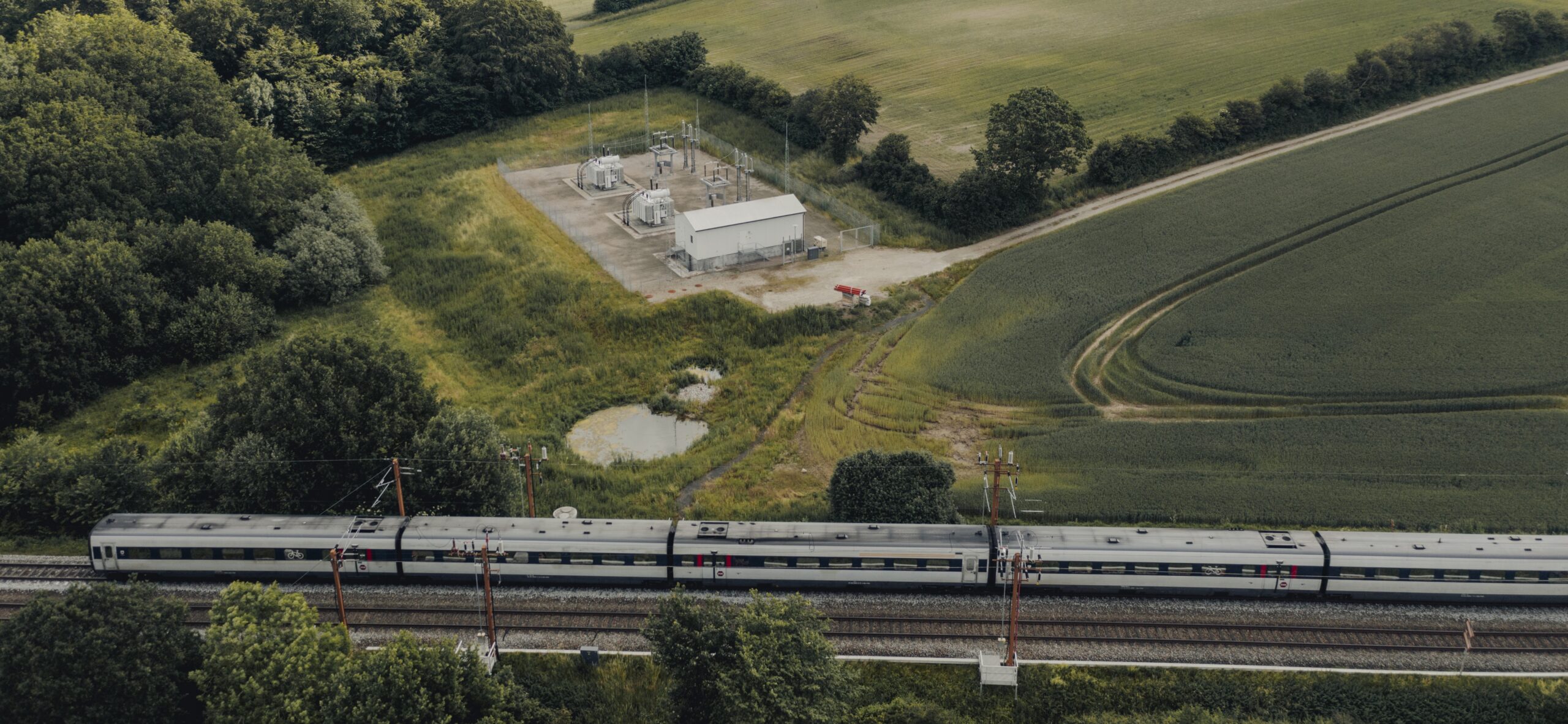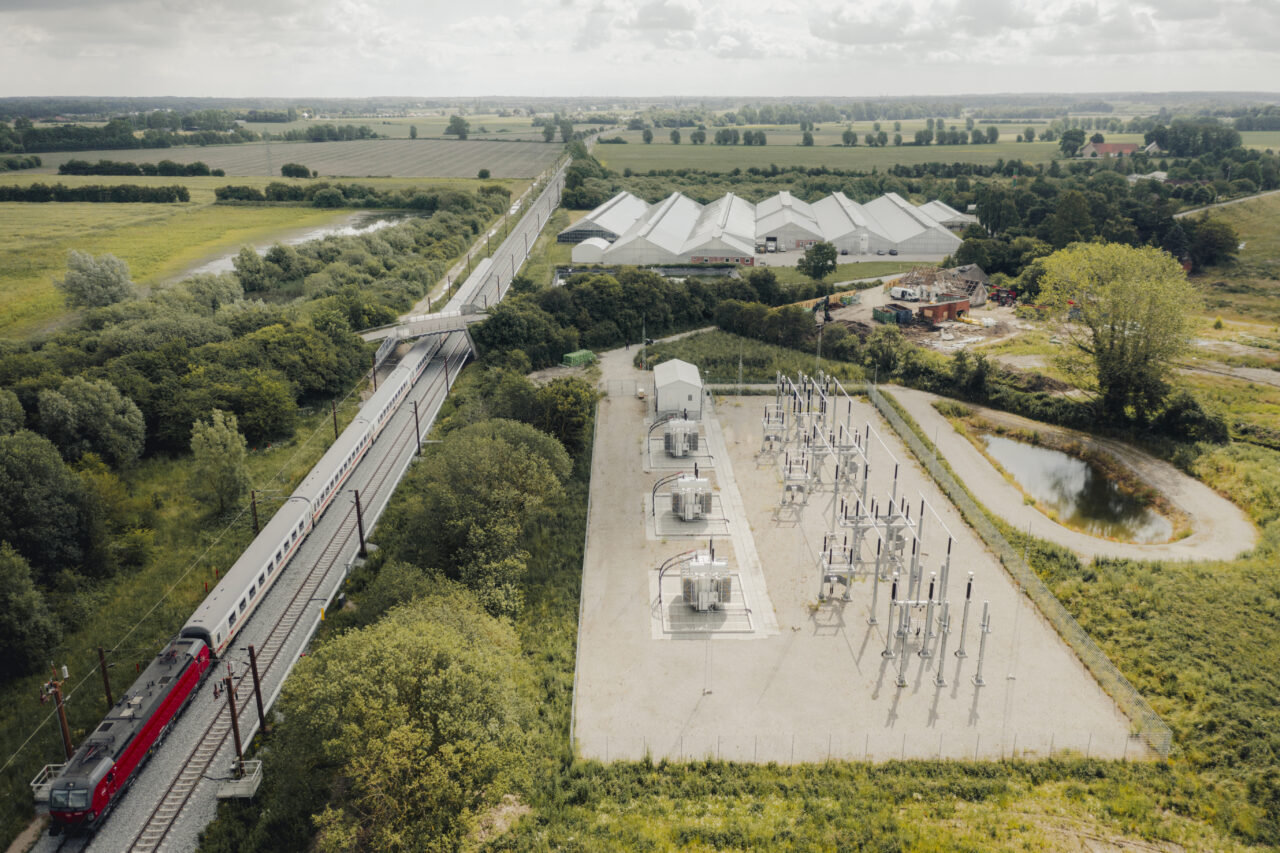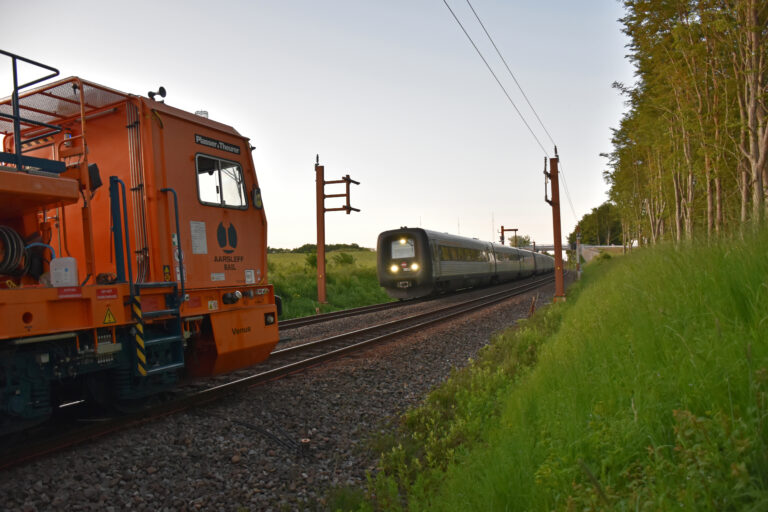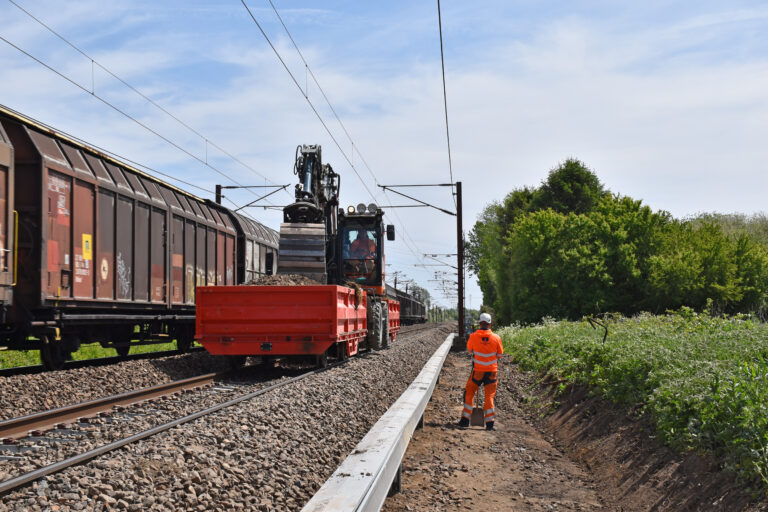On Track for a Better Future

ESG Strategy
At Aarsleff Rail, we take responsibility—for our employees, projects, and the impact we have on the environment and society. We strive for continuous improvement and work diligently to minimize our environmental footprint.
Our Commitment
Our efforts are based on ESG principles, which encompass Environment, Social Sustainability, and Governance.
We openly share our results and the areas where we can improve to ensure trust and transparency.

Environment and Climate
Our activities result in CO₂, NOₓ, odor, dust, and noise emissions, which we actively work to reduce through specific measures such as lowering diesel consumption and implementing energy-efficient solutions.
To minimize our carbon footprint, we have mapped our emissions in:
- Scope 1 – Direct emissions (e.g., fuel usage).
- Scope 2 – Indirect emissions (e.g., electricity and heating).
- Scope 3 – Indirect emissions from procurement of goods and services within selected categories.
We aim to reduce CO₂ emissions in GHG Scope 1+2 by 80% by 2030 (compared to the base year 2020/21). A significant part of this effort is reducing diesel consumption.
To achieve this, we are developing a solid data foundation and a transition plan for vehicles and machinery. We are focusing initially on passenger and commercial vehicles, followed by smaller machines (under 8 tons), and tansitioning from fossil fuels to electric vehicles, beginning with passenger cars and small work vehicles.
We use material resources in many of our projects. While essential, we strive to minimize consumption and prioritize the most sustainable options.
When we have leftover materials, we aim to reuse and recycle as much as possible.
By 2025, we aim for a minimum 70% recycling rate in waste management.
Biodiversity is under threat both in Denmark and globally. Therefore, we prioritize responsible choices to preserve nature and promote biodiversity.
We achieve this by making conscious, responsible decisions in procurement, advising our customers on sustainable solutions, and implementing biodiversity-friendly initiatives at individual construction sites.

Social Sustainability
Our employees are our most important resource, and their safety is a top priority. We work actively to create a safe workplace by minimizing the risk of accidents and physical strain.
Through preventive measures and continuous improvements, we ensure that our employees can perform their work safely and efficiently.
By 2028, we aim to:
- Reduce the accident frequency to below 5.0.
- Reduce absenteeism to below 3.5%.
Our workforce is generally characterized by broad diversity, and we need all skilled and talented employees to achieve Aarsleff Rail’s strategic goal of creating societal value with a focus on sustainability and results on par with the best comparable companies in our industry.
We prioritize our employees’ well-being by ensuring the best possible working conditions, allowing them to thrive physically and mentally.
We conduct annual well-being surveys and follow up thoroughly to maintain a high level of employee satisfaction and engagement.
We aim to achieve:
- An employee satisfaction rate above 95%.
- An employee engagement score of at least 80.
As a company, we are part of a larger value chain and a broader societal context. Just as our conditions are influenced by society, our activities also impact the outside world.
We take responsibility and aim to contribute positively—to workforce development, innovation, transparency, local communities, and education.
We achieve this by collaborating closely with customers, contractors, and partners to create sustainable solutions, participating in innovation projects that drive growth and improvement, ensuring transparency and communication about our environmental impact, and committing to a workforce composition of at least 10% apprentices and students, and 5% interns.

Governance
To take responsibility for our environmental and social impact, we must first understand our footprint. This enables us and our customers to make informed decisions, and track progress toward our sustainability goals.
We are working to improve our data foundation, and to do better at documenting the positive actions we are taking.
Starting from the 2024/2025 fiscal year, our ESG reporting will comply with the EU’s Corporate Sustainability Reporting Directive (CSRD), and the EU Taxonomy Regulation.
By 2025, we will centrally collect data on consumption and waste from all our projects.
At Aarsleff Rail, we have established a range of policies that support our ESG development initiatives. These include policies on:
- Environment and climate
- Human rights
- Occupational health and safety
- Diversity
- Anti-corruption
- Whistleblower protection
These policies ensure that we operate responsibly and sustainably in all aspects of our business.


